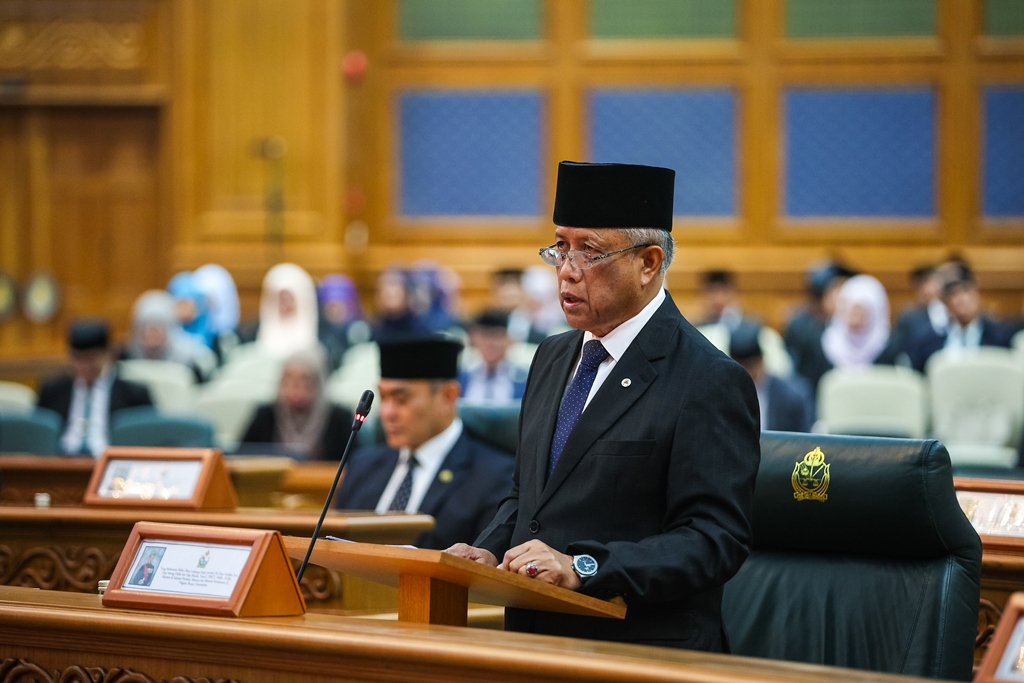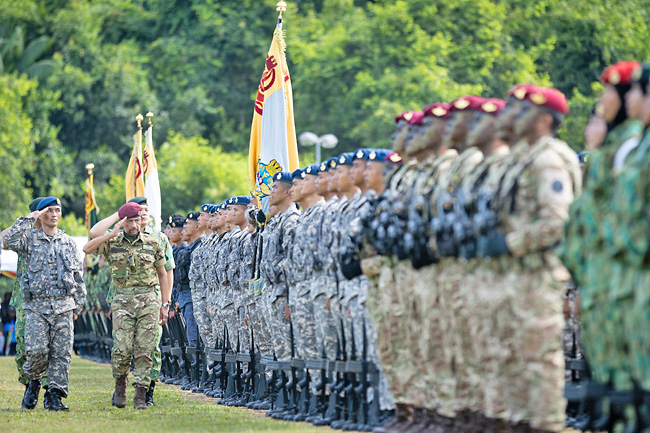Welfare System
The Government of Brunei Darussalam continuously implements significant approaches to improve the quality of life by providing subsidies and welfare assistance. Significant subsidies have been made for Bruneian residents, especially in the areas of housing, healthcare and education. Since 1984, over 30,000 houses have been constructed under the National Housing Scheme (RPN) and Landless Indigenous Citizens Housing Scheme (STKRJ) for the people of Brunei. In efforts to reduce total dependence on the government, the Housing Development Department (JKP) is also exploring alternatives such as analysing alternative financing through public-private partnership or sukuk, a proposal for a developer’s scheme, or the optimisation of abandoned or empty houses.
The National Welfare System (SKN) is a collection of welfare schemes under one system for the public to apply for assistance. A centralised database was built allowing detailed analysis of poverty gap ensuing that assistance is extended to individuals in need. Applications submitted through SKN will be processed by the relevant agencies and further investigation will be conducted to assess if the applicant is eligible to receive assistance.
Besides the government, nongovernmental organisations (NGOs) including Yayasan Sultan Haji Hassanal Bolkiah, Pengiran Muda Mahkota Al-Muhtadee Billah Fund for Orphans (DANA), Brunei Islamic Religious Council (MUIB), voluntary organisations, banking institutions and others are also actively contributing for community development activities and to those in need.
Launched in July 2023, the National Retirement Scheme (SPK) replaces the Employees Trust Fund (TAP) and Supplemental Contributory Pension (SCP) schemes. It offers a more secure retirement assurance by providing retirees with a better and higher monthly retirement income, surpassing the financial retirement benefits under the two previous schemes. Under SPK, contributions will be divided into member contributions and employer contributions. Member contributions from their salary will be deposited into the member account from which members can make withdrawals for their pre-retirement needs. Employer contributions will be pooled into the retirement account for the members’ retirement.
In addition to its housing and welfare assistance, Bruneians are also provided with free healthcare. Citizens are only required to pay BND1 when consulting practitioners, receiving medication or obtaining a complete check-up at any government hospital or healthcare centres.
On the education front, the government provides free enrolment to all citizens at government schools nationwide. Students who wish to continue their education also have the opportunity to do so through scholarships either locally or abroad.

Legislative Council

The Legislative Council (LegCo) is Brunei Darussalam’s Parliament, acting as the official arena for airing and resolving issues or problems within the country. First established in 1959, the council held a total of 32 meetings until it was frozen in 1984 after the country resumed independence. In 2004, the LegCo was revived and the council continued to handle internal issues and concerns over the next 12 years.
In 2016, the Department of the Councils of State under the Prime Minister’s Office announced the dissolution of the LegCo. His Majesty Sultan Haji Hassanal Bolkiah Mu’izzaddin Waddaulah ibni Al-Marhum Sultan Haji Omar ‘Ali Saifuddien Sa’adul Khairi Waddien, Sultan and Yang Di-Pertuan of Brunei Darussalam commanded the re-establishment of LegCo the following year. In accordance with Section 49 of the Brunei Constitution of 1959, each LegCo member shall take their oath or sworn-in and recite their declaration in the presence of the LegCo Speaker prior to taking up their responsibilities and chairs.
Besides the annual expenditure, the LegCo meetings also discuss relevant and significant issues for the benefit of the people in a consultation manner carried out.
Judiciary Council
Brunei Darussalam’s legal system implements the English Common Law and the Islam-ordained Syariah Law simultaneously to preside over the country’s residents. The two laws are overseen by the Supreme Court and coexist to administer a system that is well-rounded and fair towards the nation.
The Attorney General’s Chambers is responsible for overseeing the execution of the laws and enacting any amendments to existing acts. The Attorney General is the principal legal adviser to the government and is also responsible for the drafting of legislation. In carrying out the task of legislative drafting, the Attorney General’s Chambers works closely with the relevant ministries and departments.
To ensure a thorough and meticulous implementation of the Syariah Law, a group of specialists spearheaded by the Chief Syar’ie Judge oversees the process.

National Security
Brunei Darussalam’s internal security is managed by the Royal Brunei Police Force (RBPF) who maintains law and order in the country. Some of their roles include collection of criminal intelligence, traffic control, escort duties (VIPs, cash, prisoners), prevention, detection and investigation of crime, sea and border patrol, maintenance of public order, as well as riot and public event control. In curbing criminal activities, the RBPF engages with communities in all districts through its neighbourhood watch programme.
Established in 1993, the Brunei Internal Security Department (BISD) monitors any potential security issues that may arise and report them to the government. Internal security issues monitored by BISD include subversion, espionage, sabotage, terrorism and promotion of racial and religious violence. The BISD works closely with the RBPF to ensure the nation’s security.
The Royal Brunei Land Force, Royal Brunei Navy and the Royal Brunei Air Force are under the umbrella institution of the Royal Brunei Armed Forces (RBAF). The RBAF primarily protects Brunei from any foreign threat that may challenge the country’s sovereignty and territorial integrity, with His Majesty Sultan Haji Hassanal Bolkiah Mu’izzaddin Waddaulah ibni Al-Marhum Sultan Haji Omar ‘Ali Saifuddien Sa’adul Khairi Waddien, Sultan and Yang Di-Pertuan of Brunei Darussalam as the Supreme Commander.
RBAF also deals with counterterrorism operations and aids the maintenance of internal security, repressing potential or actual insurgencies within the state. The RBAF anniversary is held every year on May 31 in honour of those who serve the country.
Other institutions involved in the country’s national security include the Narcotics Control Bureau and Anti-Corruption Bureau under the Prime Minister’s Office, Royal Customs and Excise Department under the Ministry of Finance and Economy, and Immigration and National Registration Department under the Ministry of Home Affairs.

